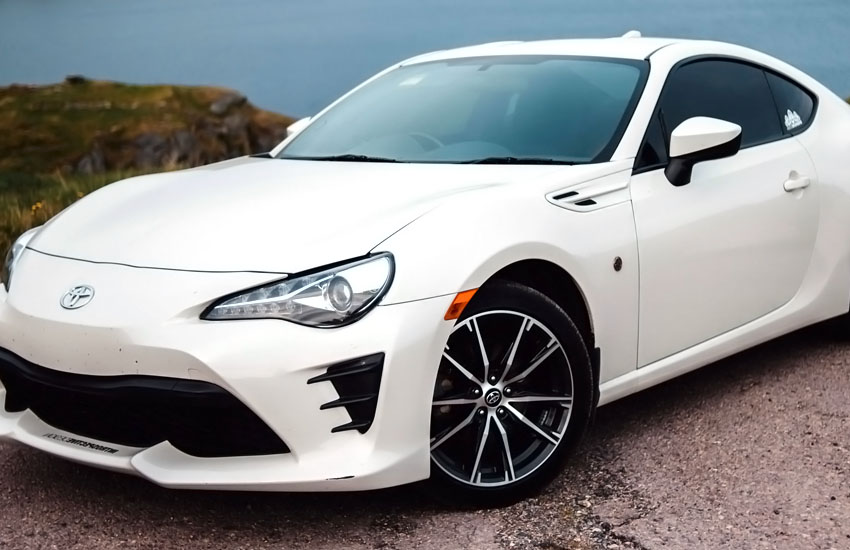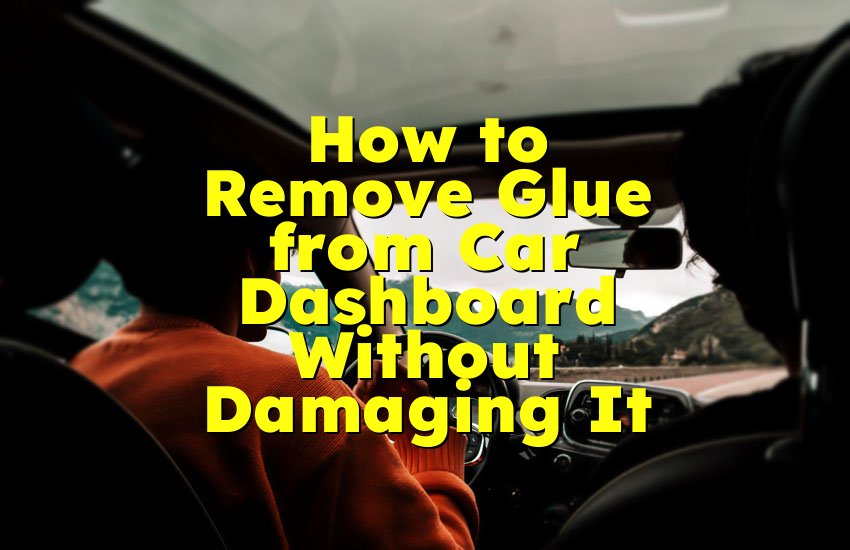As an Amazon Associate, I earn from qualifying purchases at no extra cost to you.
Car Shuts Off When Stopped Or Slowing Down: Fix It Now!
Have you ever been cruising along, stopping at a light, and suddenly your car just shuts off? It's a weird feeling, right? You're sitting there thinking, "What the heck just happened?" Well, don't worry—you're not alone. This issue can happen to anyone, and the good news is that it's often fixable. In this guide, I'll walk you through the common causes behind your car shutting off when you stop or slow down, how to diagnose and fix the issue, and tips on preventing it from happening again. So, buckle up (pun intended!) and let's dive in.

Common Causes of Car Shutting Off When Stopped
When your car suddenly dies while you’re idling at a stoplight or slowing down to make a turn, it can be an unsettling experience. This issue is more common than you might think, and it usually points to one of a few specific problems with your vehicle. Here's a breakdown of the main causes that could be triggering your car's engine to shut off unexpectedly.
1. Dirty or Failing Idle Air Control Valve (IAC)
One of the most common reasons your car shuts off when stopping is a malfunctioning Idle Air Control Valve (IAC). The IAC is a small component in your car's engine that helps regulate the amount of air entering the engine while it’s idling. It adjusts the engine's idle speed to keep the engine running smoothly when you’re at a stop. If the IAC becomes dirty or fails, the engine may struggle to idle correctly, causing it to stall or shut off entirely.
The IAC can get clogged with dirt, debris, or carbon deposits over time, especially in older cars. When this happens, it can't properly control airflow, and your car might stall when idling or slowing down. Cleaning the valve can solve the problem in many cases, but if the valve is too damaged, it may need to be replaced.
2. Failing Fuel Pump or Fuel Filter
Your car needs a constant supply of fuel to keep running, but if something goes wrong with the fuel system, it could result in stalling or the engine shutting off at low speeds. A failing fuel pump or a clogged fuel filter are common culprits in this situation.
The fuel pump is responsible for delivering fuel from the tank to the engine. If the pump is faulty or struggling, your car may not receive the right amount of fuel, which can cause the engine to sputter and shut off. A clogged fuel filter, on the other hand, can restrict fuel flow, leading to similar issues. A fuel system check-up will help you identify whether the fuel pump or filter is the problem, and replacing them might be necessary.
3. Faulty Throttle Position Sensor (TPS)
The Throttle Position Sensor (TPS) plays a key role in regulating the amount of air-fuel mixture entering the engine by communicating the position of the throttle. When you step on the gas pedal, the TPS sends a signal to the engine control unit (ECU) to adjust fuel and air accordingly. If this sensor is faulty, it can cause the engine to misinterpret the amount of fuel it needs, leading to rough idling or stalling when the car is slowing down.
A malfunctioning TPS can cause erratic idling, hesitation, and even engine shutdowns when you're stopping or slowing down. In most cases, a diagnostic test will reveal a faulty TPS, and replacing it is usually the fix.
4. Vacuum Leaks
Vacuum leaks are another potential cause of engine stalls or shutdowns, especially when you're coming to a stop. Your car's engine relies on vacuum pressure to operate various systems, including the idle air control system. When there's a leak in any of the vacuum hoses or seals, it can disrupt the air-fuel mixture, causing your car to stall.
Symptoms of vacuum leaks include rough idling, engine sputtering, or stalling at low speeds. The most common spots for vacuum leaks are the intake manifold, hoses, and gaskets. Fixing these leaks often involves replacing cracked or worn-out hoses and seals.
5. Weak or Dead Battery
A weak or dying battery can also cause your car to shut off unexpectedly. While a weak battery is typically associated with problems starting the car, it can affect the engine’s performance when you’re idling or slowing down, too. If your battery is not supplying enough power to the electrical components that keep the engine running, it might cause your car to stall.
Sometimes, the problem lies in the alternator, which charges the battery while the car is running. If the alternator is failing, it could lead to your car losing power while idling or at low speeds. A battery check and alternator test can help identify if this is the cause of your problem.
6. Malfunctioning Engine Control Unit (ECU)
The Engine Control Unit (ECU) is essentially the brain of your car's engine. It monitors and controls various aspects of the engine's performance, including fuel injection, ignition timing, and idle speed. If the ECU starts malfunctioning, it can send incorrect signals to the engine, causing it to shut off when stopping or slowing down.
Diagnosing an ECU problem typically requires a professional mechanic who can perform a full diagnostic scan to identify any fault codes. If the ECU is found to be the issue, it may need to be reprogrammed or replaced.
7. Problems with the Alternator or Charging System
Your car's alternator doesn't just power the electrical system—it also keeps your battery charged while the engine is running. If the alternator is malfunctioning or if the charging system isn't working properly, your battery may not be getting enough charge to keep the car running. As a result, the car could stall or shut off when idling.
A failing alternator is usually indicated by a warning light on your dashboard or a noticeable decrease in power or electrical function. If this is the issue, replacing the alternator should solve the problem and prevent the car from stalling.
8. Clogged Air Filter
A clogged air filter can also contribute to engine stalls when slowing down. The engine needs a steady flow of clean air to run efficiently, and when the air filter gets dirty or blocked, it can limit airflow to the engine. As a result, the engine may struggle to maintain a smooth idle, causing it to shut off when you stop.
If your car has been idling roughly or stalling at stoplights, check the air filter. Replacing a clogged air filter is an easy and inexpensive fix that can help restore proper engine performance.
How to Diagnose and Fix the Issue
Now that you know the most common causes behind your car shutting off when stopping or slowing down, it's time to figure out what's going wrong with your vehicle. While some issues, like a dirty air filter or low fuel, are relatively easy to diagnose on your own, others, such as a faulty ECU or malfunctioning IAC, may require professional help. Here's a step-by-step guide to diagnosing and fixing the problem.
Step 1: Check for Warning Lights
The first thing you should do is check for any warning lights on your dashboard. Most modern cars have an on-board diagnostic system that triggers a check engine light when there's an issue with the engine. If the light is on, it's a sign that your car's computer has detected a problem. You can take your car to an auto parts store or a mechanic who can scan the codes and tell you what the problem is. This will give you a better idea of where to focus your attention.
Step 2: Inspect the Idle Air Control Valve (IAC)
If the check engine light doesn't point to a specific issue, the next thing to check is the IAC valve. You can start by removing the valve and cleaning it with carburetor cleaner to remove any carbon buildup. Be sure to check for any visible damage to the valve. If cleaning it doesn't solve the problem, you may need to replace it entirely. A new IAC valve is often affordable and easy to replace, even if you're a beginner with car repairs.
Step 3: Check the Fuel System
Next, check the fuel pump and fuel filter. If your car is stalling due to fuel delivery issues, a clogged filter or faulty pump may be to blame. To test the fuel pump, you can listen for a humming noise coming from the fuel tank when you turn the key to the “on” position. If you don't hear anything, the pump might be faulty. Replacing the fuel filter is a relatively simple task, but replacing the fuel pump is a more involved process that might require professional help.
Step 4: Look for Vacuum Leaks
Vacuum leaks are another common cause of engine stalls. If your car is stalling at low speeds, inspect the vacuum hoses for cracks or signs of wear. Use a spray bottle with soapy water to spray around the vacuum hoses while the engine is running. If you notice the engine idle changes or sputters, you've likely found a leak. Replacing or repairing the hose should resolve the issue.
Step 5: Replace the Throttle Position Sensor
A faulty throttle position sensor (TPS) can cause issues with the air-fuel mixture, leading to stalling when you slow down or stop. Replacing the TPS is a relatively simple process that you can do yourself if you’re comfortable with car repairs. Make sure you buy the correct part for your car model and follow the installation instructions carefully.
Step 6: Test the Battery and Alternator
If the car is shutting off due to electrical issues, start by testing the battery and alternator. You can use a multimeter to check the battery voltage; it should be around 12.6 volts when the car is off and around 13.7-14.7 volts when the car is running. If the voltage is lower than this range, the battery or alternator might be faulty. If you're unsure how to test these components, a mechanic can help you out.
Step 7: Have the ECU Checked
If all else fails, it might be time to have the ECU checked. An experienced mechanic can perform an in-depth diagnostic test to determine if the ECU is causing the engine shutdowns. In many cases, a malfunctioning ECU can be reprogrammed, but in some cases, it may need to be replaced.
Preventative Measures to Avoid Engine Stalls
Now that you've figured out how to diagnose and fix your car's stalling issues, let's talk about how to prevent them from happening in the future. Taking good care of your car can go a long way in avoiding unexpected shutdowns when you're stopped or slowing down. Here are a few simple maintenance tips that can help you keep your engine running smoothly.
1. Regularly Change the Air Filter
A clean air filter is essential for proper engine performance. If your air filter is clogged or dirty, it can cause poor airflow and lead to stalling or rough idling. Make it a habit to check and replace your air filter every 12,000 to 15,000 miles, or as recommended by your car's manufacturer.
2. Keep the Fuel System Clean
Your fuel system is crucial for your car's overall performance. Over time, dirt and debris can accumulate in the fuel lines and filter, leading to blockages that affect fuel delivery. Regularly replace the fuel filter and consider using a fuel system cleaner every 30,000 miles to keep the system in good condition.
3. Monitor Battery and Alternator Health
Your battery and alternator work together to provide power to your car's electrical systems. Keep an eye on the battery's health by checking for corrosion on the terminals and ensuring the battery holds a charge. Have the alternator tested regularly, especially if you notice any electrical issues or dim lights.
4. Inspect the Idle Air Control Valve
Cleaning or replacing the IAC valve every few years can help prevent idle-related issues. This part doesn't usually require frequent attention, but when it gets dirty or clogged, it can affect engine performance. Check your car's manual for guidance on how often to clean or replace it.
5. Stay on Top of General Maintenance
Lastly, make sure you're staying on top of your car's overall maintenance. Regular oil changes, tire rotations, and checking fluid levels are all essential for keeping your car running well. Follow the maintenance schedule provided in your car's owner manual to avoid unnecessary problems down the road.
I hope this guide has shed some light on why your car might be shutting off when you stop or slow down. Whether it's a dirty idle air control valve, a clogged fuel filter, or a malfunctioning sensor, there are plenty of potential causes, but the good news is most of them can be fixed with a little attention and maintenance. Keep your car in good shape, and hopefully, those engine stalls will become a thing of the past!
Frequently Asked Questions
Is it safe to drive a car that shuts off when stopped?
It's generally not safe to drive a car that shuts off when stopped, as it could indicate a serious issue with your engine or fuel system. It's best to get it checked out by a mechanic.
Can a dirty fuel filter cause stalling?
Yes, a dirty fuel filter can restrict fuel flow to the engine, leading to stalling or difficulty starting the car. Replacing the fuel filter can solve this issue.
Do I need to replace the battery if my car shuts off when stopping?
Not necessarily. While a weak battery could cause your car to stall, it could also be due to other factors like the alternator or fuel system. It's best to have the battery and charging system checked.
Is it normal for the engine to stall occasionally?
Occasional engine stalls can happen, but frequent stalling is not normal and should be investigated. There is usually an underlying issue that needs to be addressed.
Can low fuel cause stalling when slowing down?
Yes, if your fuel level is too low, it can cause the engine to sputter or stall, especially at low speeds when fuel demand is higher.
Is it safe to clean the idle air control valve myself?
Cleaning the idle air control valve is generally safe if you follow the instructions carefully. However, if you're unsure, it's best to have a mechanic do it.
Do I need to replace the alternator if my car shuts off?
If the alternator is not charging the battery properly, it could cause your car to shut off. You may need to replace the alternator if it's found to be faulty.
Can a vacuum leak cause the engine to stall at low speeds?
Yes, a vacuum leak can disrupt the air-fuel mixture, causing rough idling or stalling at low speeds. Fixing the leak should resolve the issue.











